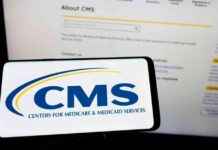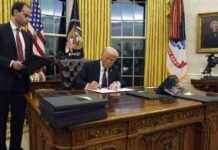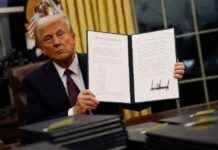President Trump’s recent decision to impose import taxes on goods from Canada, China, and Mexico has sparked concerns about potential increases in healthcare costs for American consumers. With tariffs of 25% on imports from Canada and Mexico and 10% on goods from China set to take effect imminently, the impact on various sectors of the economy, including healthcare, is already being felt.
Uncertainty in the Healthcare Industry
The healthcare industry, already grappling with rising costs and accessibility issues, now faces additional challenges due to the tariffs imposed by the Trump administration. As the top source of medical devices used in the U.S., Mexico plays a crucial role in the healthcare supply chain. The tariffs on Mexican imports could lead to higher prices for medical devices, ultimately affecting patient care and hospital budgets.
Moreover, China’s prominence as a key producer of pharmaceutical ingredients raises concerns about potential price hikes for finished drugs. If the costs of ingredients increase due to tariffs, pharmaceutical companies may be forced to pass on those expenses to consumers, resulting in higher prices for essential medications. This could have far-reaching implications for patients who rely on these drugs to manage chronic conditions and life-threatening illnesses.
Industry Response and Potential Solutions
Industry experts, such as the industry group AdvaMed, are closely monitoring the situation and assessing the potential impact of the tariffs on healthcare costs. Manufacturers may explore alternative sourcing options or consider shifting production to countries not subject to the tariffs in order to mitigate the financial strain caused by the import taxes. While such measures may offer some relief in the short term, the long-term effects of the tariffs on healthcare affordability and accessibility remain uncertain.
In light of these developments, policymakers, healthcare providers, and patients are urged to stay informed and engaged in discussions about the implications of the tariffs on the healthcare sector. Collaboration between stakeholders in the industry is essential to find innovative solutions that prioritize patient care and affordability while navigating the challenges posed by the changing trade landscape.
John Wilkerson, a seasoned Washington correspondent for STAT who specializes in healthcare policy, emphasizes the importance of transparency and proactive communication in addressing the potential impact of the tariffs on healthcare costs. By staying informed and advocating for policies that promote access to affordable healthcare, individuals can play a vital role in shaping the future of healthcare in the face of evolving economic pressures.
As the healthcare industry braces for the repercussions of President Trump’s tariffs on imports from key trading partners, it is imperative for stakeholders to work together to safeguard patient care and ensure the sustainability of the healthcare system. By fostering open dialogue and exploring innovative solutions, the industry can navigate these uncertain times with resilience and a commitment to putting patients first.

















